Top Rankings
West York Area School District ranks among the top 20% of public school district in Pennsylvania for:
Category
Attribute
Diversity
Most diverse schools (Top 1%)
For the 2025 school year, there is 1 public preschool serving 439 students in West York Area School District.
Public Preschools in West York Area School District have a diversity score of 0.65, which is less than the Pennsylvania public preschool average of 0.70.
Minority enrollment is 47% of the student body (majority Hispanic), which is less than the Pennsylvania public preschool average of 55% (majority Black and Hispanic).
Overview
This School District
This State (PA)
# Schools
5 Schools
328 Schools
# Students
2,774 Students
147,214 Students
# Teachers
211 Teachers
11,259 Teachers
Student : Teacher Ratio
13:1
13:1
District Rank
West York Area School District, which is ranked within the bottom 50% of all 675 school districts in Pennsylvania (based off of combined math and reading proficiency testing data) for the 2021-2022 school year.
The school district's graduation rate of 86% has decreased from 87% over five school years.
Overall District Rank
#453 out of 684 school districts
(Bottom 50%)
(Bottom 50%)
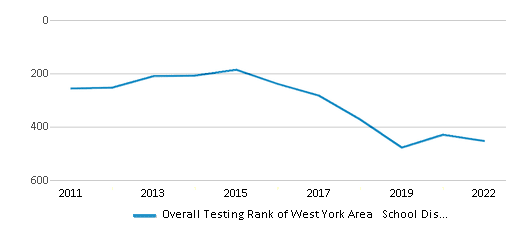
Math Test Scores (% Proficient)
30%
36%
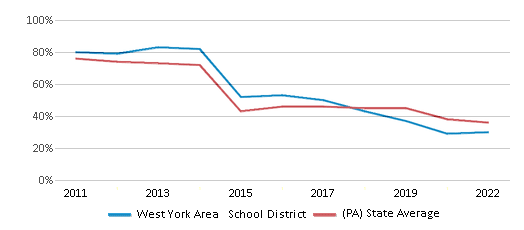
Reading/Language Arts Test Scores (% Proficient)
49%
55%
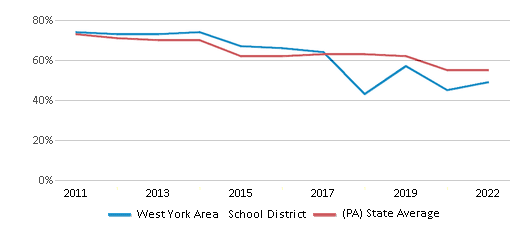
Science Test Scores (% Proficient)
48%
57%
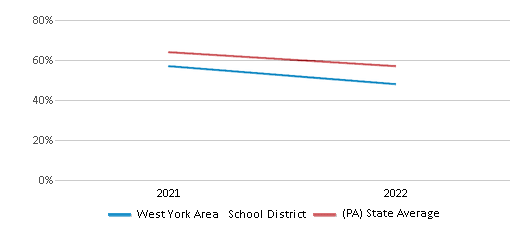
Graduation Rate
86%
87%
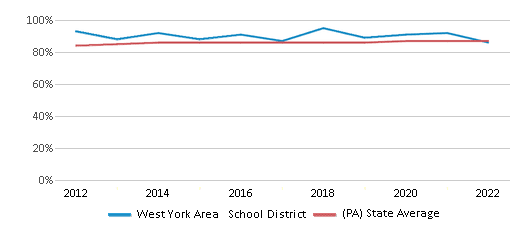
Students by Ethnicity:
Diversity Score
0.65
0.70
# American Indian Students
9 Students
267 Students
% American Indian Students
n/a
n/a
# Asian Students
77 Students
4,636 Students
% Asian Students
3%
3%
# Hispanic Students
618 Students
31,371 Students
% Hispanic Students
22%
21%
# Black Students
311 Students
35,365 Students
% Black Students
11%
24%
# White Students
1,482 Students
65,860 Students
% White Students
54%
45%
# Hawaiian Students
1 Student
108 Students
% Hawaiian Students
n/a
n/a
# Two or more races Students
276 Students
9,607 Students
% of Two or more races Students
10%
7%
Students by Grade:
# Students in PK Grade:
-
8,317
# Students in K Grade:
229
24,393
# Students in 1st Grade:
210
20,742
# Students in 2nd Grade:
193
21,144
# Students in 3rd Grade:
206
18,141
# Students in 4th Grade:
219
18,415
# Students in 5th Grade:
210
14,862
# Students in 6th Grade:
230
6,743
# Students in 7th Grade:
204
4,529
# Students in 8th Grade:
212
4,525
# Students in 9th Grade:
214
1,699
# Students in 10th Grade:
253
1,361
# Students in 11th Grade:
210
1,242
# Students in 12th Grade:
184
1,101
# Ungraded Students:
-
-
District Revenue and Spending
The revenue/student of $22,734 in this school district is less than the state median of $23,696. The school district revenue/student has stayed relatively flat over four school years.
The school district's spending/student of $23,178 is higher than the state median of $23,119. The school district spending/student has stayed relatively flat over four school years.
Total Revenue
$63 MM
$39,541 MM
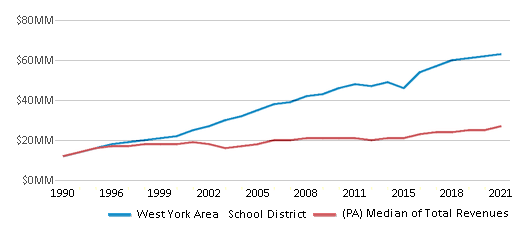
Spending
$64 MM
$38,578 MM
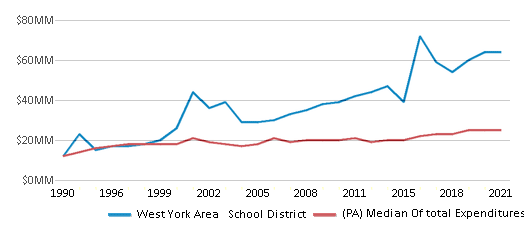
Revenue / Student
$22,734
$23,696
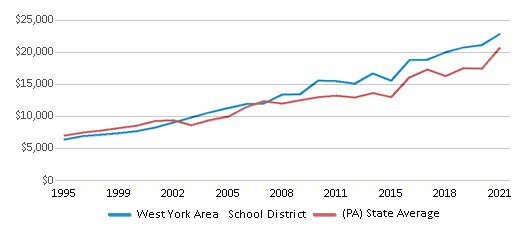
Spending / Student
$23,178
$23,119
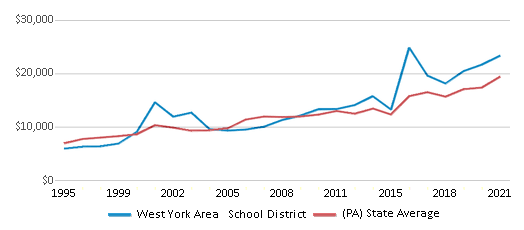
Best West York Area School District Public Preschools (2025)
School
(Math and Reading Proficiency)
(Math and Reading Proficiency)
Location
Grades
Students
Rank: n/an/a
2065 High St
York, PA 17408
(717) 764-6869
York, PA 17408
(717) 764-6869
Grades: PK-1
| 439 students
Recent Articles

Year-Round Or Traditional Schedule?
Which is more appropriate for your child? A year-round attendance schedule or traditional schedule? We look at the pros and cons.

Why You Should Encourage Your Child to Join a Sports Team
Participating in team sports has a great many benefits for children, there is no doubt. In this article you will learn what those benefits are.

White Students are Now the Minority in U.S. Public Schools
Increasing birth rates among immigrant families from Asia and Central and South America, combined with lower birth rates among white families, means that for the first time in history, public school students in the United States are majority-minority. This shift in demographics poses difficulties for schools as they work to accommodate children of varying language abilities and socio-economic backgrounds.





